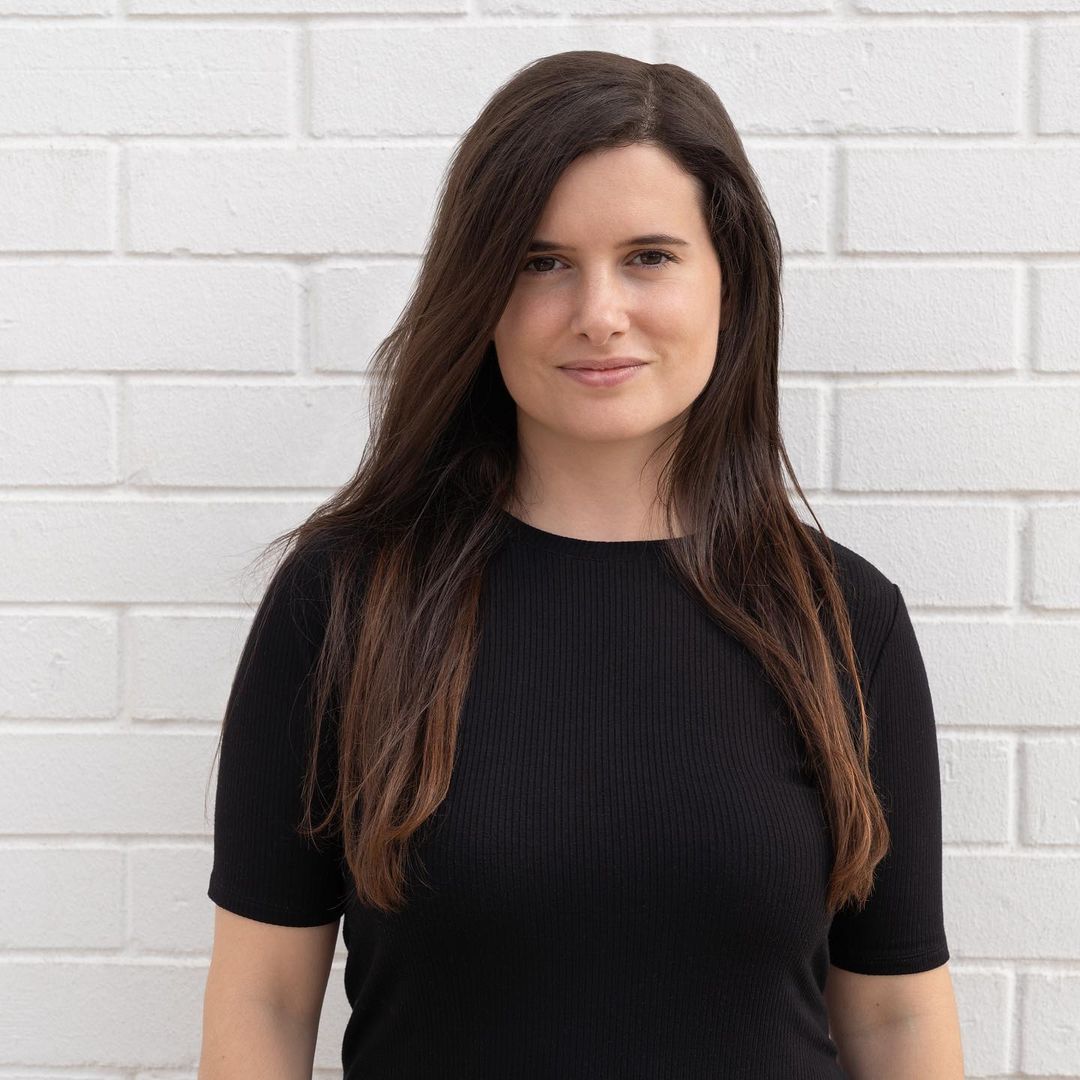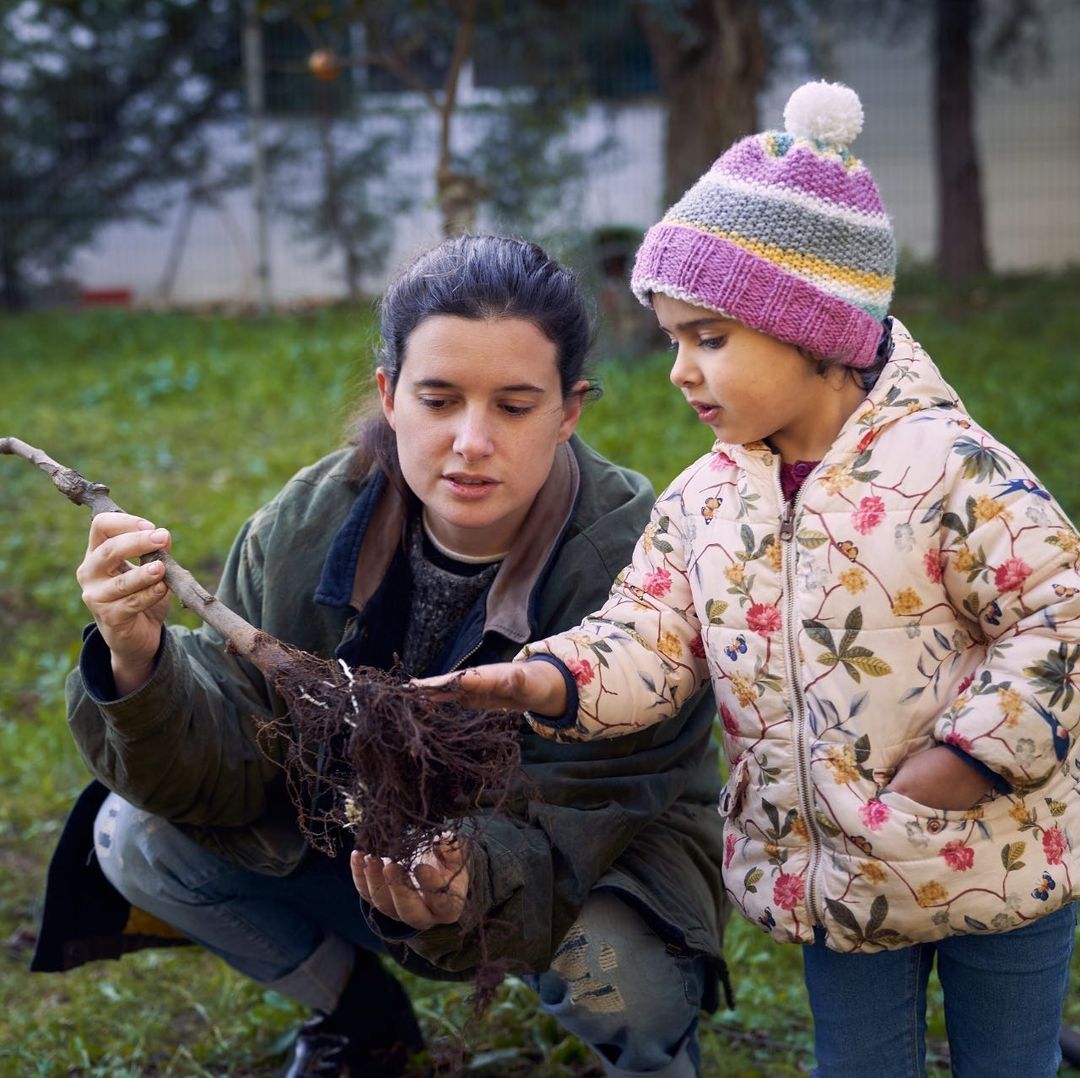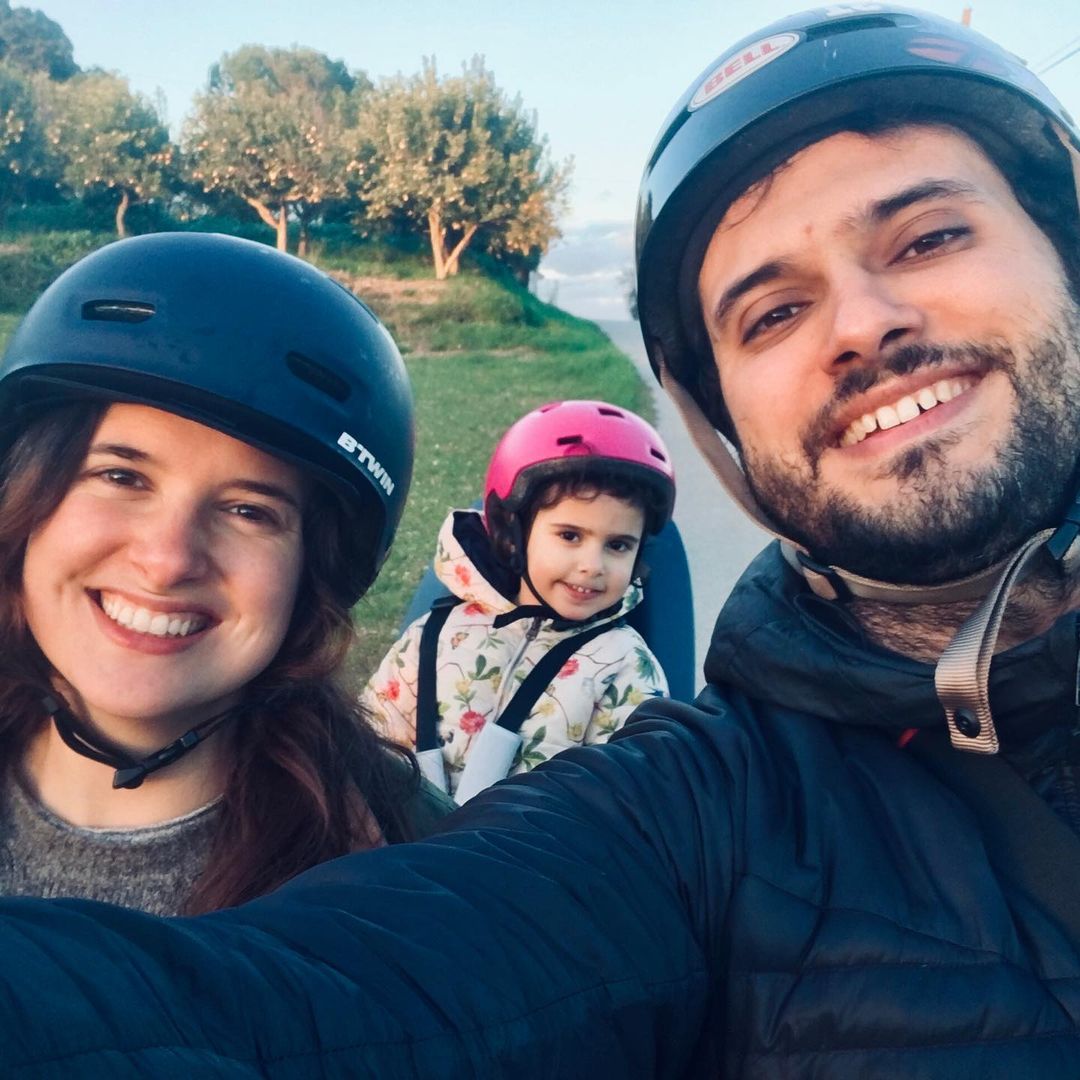Joana began by talking about minimalism and how easy it was —and liberating—to live with less. But that theme was no longer enough for her. Like the ecology that lives in so many others, Joana now talks about politics, feminism, social justice and minorities.
She does not stop living with little and, in his house there is no toilet paper or toys made in Bangladesh.
Joana Guerra Tadeu, who on Instagram has almost 16,000 followers, was talking to Peggada about how much she does and about what even more she wants to do.
You were the minimalist, now you’re the imperfect environmentalist. What’s changed about you?
I have returned to my roots as an activist more focused on political, social and economic issues, and not so much to consumption. It’s just that minimalism has everything to do with consumption or lack thereof, and it started to annoy me about my focus on calling my audience “consumers” or using hashtags like #consciousconsumption, when what I valued was much more than that. I privilege the citizen and not the consumer.
At the same time, proposals appeared to me that asked me to talk about minimalism and organization, minimalism and productivity or minimalism and well-being and that is not what I am passionate about. I realized that it worked up to that point, but that there was a confusion about what was my message that I wanted to stop. So I started to use the word environmentalist, because it meets what I want to do, much more than minimalist.
You are also an active voice in feminist issues. Are ecology and feminism concepts that converge?
Undoubtedly. Environmentalism and sustainability depend practically entirely on social justice, and without feminism there will be no social justice.
A while ago I wrote a phrase on Instagram even with the intention of provoking: “Climate change is a problem caused by men with a feminist solution.” I believe this, because the truth is that the economic and political systems that have brought us here have always been dominated by men. In this sense, I believe that if we can achieve what is the feminist ideal, we will also achieve the end of climate change, or at least take a different approach to the problem. The controversy that occurred with this phrase, common to those who do not quite understand what feminism, was related to the confusion between feminist solution and female solution. It’s completely different things.

Are women naturally more sustainable or is it all a matter of marketing?
I don’t think women are anything else. And that’s why I like to point out the difference between feminist solution and female solution, because the solution is not women, the solution is equality.
As for marketing, the reason women seem more concerned about it is because such a patriarchal system has put women in making decisions from shopping to the house. The woman chooses the decoration, the food, the cleaning products, the cosmetics that the whole family uses and even gets to be the woman to buy the clothes that the man wears. And, of course, when sustainability came to marketing, all this marketing was turned to women. Are women making those decisions? Yes. But it is a perpetuation of a problem.
Even though you’ve changed your name and the topics covered, do you still live in a minimalist way?
Of course i do. I haven’t stopped being minimalist, but now I talk about more subjects in a deeper way. I think the easiest way to get to the largest number of people is to talk about what the benefits are to themselves. And this is not a criticism: we all look first at ourselves, then at our family, then at our community, and only after that we are more or less controlled do we open our eyes to see what’s going on on the other side of the world. My approach as a minimalist was the same, to imply how good this approach was for each person. I still believe that this is the way to get more people to change their habits, but I decided to approach the issues differently, turning to people who have done a lot, so they can do even more.
I realized that 95% of my audience are people like me, that is, highly privileged: white, licensed, middle or middle/upper class women. These people can do more than change their habits, they can give back, they can put their privilege at the service of planetary issues. I wanted to ask for more from my audience, because I know he can give more.
Was there a trigger in your journey that led you to minimalism?
My parents met at the Assembly of the Republic. My father was in the Communist Party and my mother was from the Greens. They started working together when the CDU was born and I was born a year and a half later. So I was brought up by these [risos] two people with a number of ideals that obviously transferred to me. Then the second trigger occurred when, at the age of ten, I went to live in the countryside and started to take care of the animals and the vegetable garden. I started to have a connection to earth and the planet much stronger than if I went to the supermarket.
The third trigger happened when I got out of college. I was a journalist for a while, but then I turned to the corporate world, a little in defiance because I’m being exploited in journalism. Although I loved what I did, the conditions were practically inmane: rotating days off, not knowing my next day, earning the minimum wage on green receipts, without a contract, anyway. But it didn’t go well, it ended up in a depression and later on this of making activism my profession.
Is that really your profession?
Oh, yes, now it is. It took a long time, but I can finally live from this job.
Does that minimalism change when you join a family?
I gave up the corporate world and turned to what I do now. My husband, Martim, already lived with me at that time. Besides, he’s got a degree in biology and physics, so if I dump some scientific evidence on him, that’s fine. For example, to tell him that to make a roll of toilet paper it takes 140 liters of water and that if we use the shower are spent 70 liters, he does the math and says: “So go, no more toilet paper” [risos] . When my daughter Aurora arrived, I was already super within this lifestyle and so I made a point of putting together a trousseau thinking about things like reusable diapers. The problem was really the family, which didn’t bother me at all until Aurora existed. But a son doesn’t belong to us, he belongs to the whole family, and then things were different. I started to control some things.

Are there rules you enforce so others don’t mess with your sustainable bubble?
I never talk about rules, because if I get too upset, it’s certain they’re going to want to contradict me. An uncle of mine, for example, offered Aurora five plastic toys for her first Christmas, but I offered everything to her school and told him. Okay, he never bought anything plastic again.
What do you say no to?
Toys with batteries, plastic toys, toys made in China or Bangladesh, for example. But now, after a process of almost two years, the family realized and only offer something after speaking to us to understand what Aurora really needs.
If we go to your house, will we find something different? How’s a minimalist’s house?
There’s a lot more junk than what people think I should have. But the big differences might be in the kitchen, because we don’t have plastic mops, it’s all in drains. The fridge has almost no packaging and we don’t have a pantry, just a cupboard with jars. There’s no Knorr broths, there’s no pre-made food in the freezer —except for sweets my daughter loves and I buy from time to time. In the bathroom, there is only one solid shampoo and one soap for the whole family. The toothbrushes are made of bamboo, the toothpaste in tablets and we have a shower installed next to the toilet. Our room has a bed and a plant and clothes of the three fits in a closet and in a dresser.
You’ve had a blog, podcast, consulting. What are your fronts of battle right now?
I’m making tea at five, every day on Instagram [em direto com convidados] and also #impactfluence every Thursday at 9pm, where I talk to project creators with positive social impact. The podcast isn’t over, but it’s on standby. And then there are other projects under development, namely one that aims to bring these ecological alternatives to people who don’t have access to them.
And where did you learn all that, so that now you can teach?
I studied communication sciences and specialized in journalism, so all that part of communication comes from there. And it was also during the course that I learned more about politics and philosophy, even more than about how to write a news story.
I’ve always been very active politically during high school days, organized demonstrations and everything. The ecology part, on the other hand, requires a constant study. What was true in 2015, when I started, is no longer true today. You have to be always attentive, watch news, follow institutions and always look for answers to the questions that are emerging in various sources, and then understand which is the most reliable. It takes critical sense.
I spend all day reading, listening to podcasts, watching videos on Youtube and reading newsletters.
With no budget or time limits, what would you like to do now with the work you’ve already done?
I would like to bring some issues to the Assembly of the Republic, namely menstrual health and ecology; mobility and energy poverty.
In addition, I would love to do television and have a program that was light enough for people to want to see, but that had serious enough moments for important topics to be discussed in a medium that reaches so many people. And I’d like to have time to write every day, to go to a website, to a blog, to a newspaper, to television. I’d love to be paid every day to produce content.
And even if you’ve done a lot, do you feel like you can do more?
Yes, of course. I would love to travel to produce content. Ideas do not lack, I lack resources and a team at my disposal to edit videos and podcasts and support in research could put more things into practice.
In this area we always want to do more. Do you have plans for your next sustainable change?
I’m in the process of changing mobility. I have a great shame: our family of three has two cars. But I already have an electric bike, i just don’t use it on my daily routes due to the confinement. The second change I want to make soon is start composting. And the third has to do with our diet: we still consume cow’s milk, for example, and I want to change that.
Changes are difficult emotionally and not because there are no alternatives. I find it funny when people ask me if it’s hard to have a more sustainable life. Is it difficult in the sense of being more expensive? In the sense that it is more work? No. Is it hard to change? Always! Changing for the better is hard. Getting married is hard, having children is hard, getting a new job is hard, getting promoted is hard. And that doesn’t mean we’re changing for the worse.

What footprint do you expect to leave on this planet?
I want to leave a community of people who really understand what sustainability is and who want to contribute to an ideal of fair sustainability and who know where the opportunities for improvement are, obviously starting with my daughter, who I educate and who I have the most power of influence about.
Esta publicação também está disponível em:
![]() Português (Portuguese (Portugal))
Português (Portuguese (Portugal))




